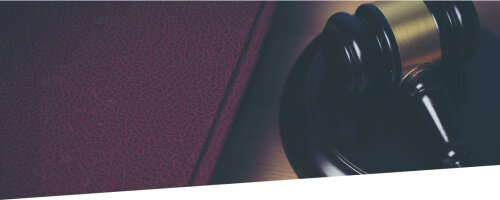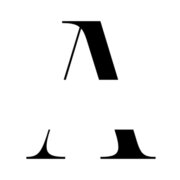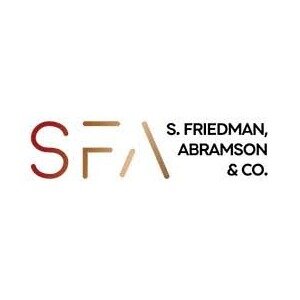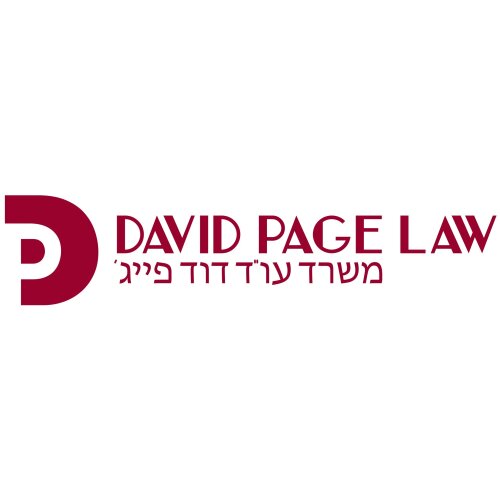Best Art & Cultural Property Law Lawyers in Jerusalem
Share your needs with us, get contacted by law firms.
Free. Takes 2 min.
List of the best lawyers in Jerusalem, Israel
About Art & Cultural Property Law in Jerusalem, Israel
Art & Cultural Property Law in Jerusalem, Israel, deals primarily with issues concerning the ownership, protection, and repatriation of artworks and cultural artifacts. This area of law is particularly significant in Jerusalem, a city with an incredibly rich historical and cultural heritage that spans thousands of years and includes the influences of diverse religions and civilizations. Legal frameworks in this field aim to balance the interests of rightful ownership, cultural preservation, and ethical considerations regarding cultural objects' provenance and distribution.
Why You May Need a Lawyer
There are several common situations where legal assistance may be crucial in the field of Art & Cultural Property Law:
- Disputes over the ownership and provenance of artworks or cultural artifacts.
- Assistance with acquiring or selling artworks, including due diligence and verification of authenticity.
- Legal advice on exporting or importing historical artifacts, adhering to Israeli laws and international conventions.
- Protection of intellectual property rights concerning artistic works, including copyright and trademark issues.
- Guidance on compliance with local and international regulations regarding cultural heritage preservation.
- Repatriation claims involving cultural property taken from the country during conflict or occupation.
Local Laws Overview
The legal landscape in Jerusalem concerning Art & Cultural Property Law includes several key aspects:
- The Israel Antiquities Authority governs archaeological finds, regulating excavations and the handling of ancient artifacts.
- The Antiquities Law of 1978 controls the export and import of antiquities, positioning them under jurisdictional protection.
- Cultural property is safeguarded under various international agreements to which Israel is a party, such as the UNESCO Convention.
- Intellectual property laws provide robust protections for artists and creators, encompassing copyrights, patents, and trademarks.
- Preservation laws require maintaining the structural integrity and significance of heritage buildings and sites.
Frequently Asked Questions
What is considered an antiquity under Israeli law?
Under the Israeli Antiquities Law, any object that was made by humans before 1700 AD is considered an antiquity. This includes objects recovered from archaeological excavations.
Can I sell an antiquity found on my property?
No, landowners cannot sell antiquities found on their property as they are considered state property under the Antiquities Law.
What should I do if I find an ancient artifact?
If you discover an ancient artifact, you must report it to the Israel Antiquities Authority, as all such items are considered state property.
Is it legal to export cultural property from Israel?
Exporting cultural property requires a license from the Israel Antiquities Authority to ensure it's lawful and that the object isn't a protected antiquity.
How does copyright law apply to art in Israel?
Copyright in Israel protects the expression of ideas in artistic works, granted automatically upon creation, covering the life of the creator plus 70 years.
What international conventions affect cultural property law in Israel?
Israel is a party to international conventions like the Hague Convention for the Protection of Cultural Property and the UNESCO Convention, impacting how cultural property is treated legally.
Can I reproduce an artwork privately owned by a museum in Jerusalem?
Reproducing an artwork requires permission from the copyright holder, even if the artwork is owned by a museum. This helps protect the intellectual property rights of the artists.
What legal steps can I take to challenge the sale of an artwork I believe to be stolen?
Engage a lawyer to immediately assess the artwork's provenance and file a claim, which can involve verifying ownership and seeking court intervention to halt the sale.
How are disputes over art ownership settled in Israel?
Disputes can be resolved through mediation, arbitration, or court proceedings, depending on the circumstances and the willingness of parties to negotiate.
What role does the Israel Museum play in cultural property law?
The Israel Museum plays a crucial role in cultural preservation, education, and sometimes in the restitution processes, offering expertise and resources for cultural property issues.
Additional Resources
For more guidance and assistance, consider the following resources:
- Israel Antiquities Authority: The primary government body managing antiquities and archaeological findings.
- Ministry of Culture and Sport: Responsible for the broader cultural policy, including museums and heritage preservation.
- The Israel Museum: Provides educational resources and assistance in cultural property matters.
- UNESCO: Offers a global perspective on cultural heritage and international agreements relevant to Israel.
Next Steps
If you need legal assistance in Art & Cultural Property Law in Jerusalem, consider the following actions:
- Identify the specific nature of your legal issue, whether it involves ownership, copyright, export, or another matter.
- Consult with a lawyer specializing in Art & Cultural Property Law to understand your legal rights and options.
- Gather any relevant documentation or evidence that pertains to your case, such as ownership records, provenance documents, or export licenses.
- Consider alternative dispute resolution methods like mediation if appropriate, as these can be less confrontational and more cost-effective.
- Act promptly, as some legal actions have strict timelines that could affect your case's success.
Lawzana helps you find the best lawyers and law firms in Jerusalem through a curated and pre-screened list of qualified legal professionals. Our platform offers rankings and detailed profiles of attorneys and law firms, allowing you to compare based on practice areas, including Art & Cultural Property Law, experience, and client feedback.
Each profile includes a description of the firm's areas of practice, client reviews, team members and partners, year of establishment, spoken languages, office locations, contact information, social media presence, and any published articles or resources. Most firms on our platform speak English and are experienced in both local and international legal matters.
Get a quote from top-rated law firms in Jerusalem, Israel — quickly, securely, and without unnecessary hassle.
Disclaimer:
The information provided on this page is for general informational purposes only and does not constitute legal advice. While we strive to ensure the accuracy and relevance of the content, legal information may change over time, and interpretations of the law can vary. You should always consult with a qualified legal professional for advice specific to your situation.
We disclaim all liability for actions taken or not taken based on the content of this page. If you believe any information is incorrect or outdated, please contact us, and we will review and update it where appropriate.
















